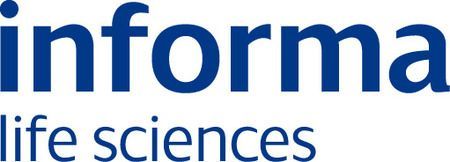Press release -
Novasep's Alain Lamproye shares his thoughts on the challenges facing the biotech industry
BPI Europe - In your opinion, what are the top three challenges facing biotech/ bioprocessing at the moment?
AL - Amongst the top challenges seen today in biotech, manufacturing cost control is likely to
be one of the most important, as it is directly related to producers’ profit margin and the
prices of medicinal drugs.. The challenge is even more obvious with the increasing share
of biosimilars on the market, where the competition is also cost‐focused. In that respect,
the improvement of process economics through process intensification and the
implementation of innovative technological choices has become of primary importance.
Another challenge is the acceptance of these disruptive innovations and technologies by
the biotech community, which has proven to be highly conservative over the years. .
Fortunately, the FDA and other Health Authorities are driving today the implementation
of such innovations, as long as they drive to a better understanding and control of the
manufacturing process, benefitting ultimately the patients and manufacturers.
Actually, the biopharma industry is facing important problems of overcapacity of their
manufacturing sites. This lead biopharma companies to either mothball or sell their
unused capacities. Some of them recently developed CMO activities to address that
issue; however, this has triggered many challenges, as they have to adapt their structure
and organization to the constraints of the CMO business. .
BPI Europe - What will delegates gain by attending your presentation?
AL - During the BPI trade show, we would like to share our expertise and provide the
attendees a better understanding of Sequential Multi‐Column Chromatography (SMCC),
which is one of the most advanced continuous chromatography technology for the
purification of biologics. As you probably know, Novasep has been a major player over the last 20 years in the implementation of cGMP continuous chromatography in pharmaceutical industry.
We are now utilizing this expertise in developing such technology for biopharmaceutical
applications. Our presentation will detail the impact of SMCC on process economics for
major classes of biologics including mAbs and blood fractions. It will help the attendees
answering to the questions “What should I expect from SMCC with regards to the
performance of the downstream processing of my product ? How does it take into
account of the specificities of my process and product?” More generally, we expect the
session to be highly interactive, and enable attendess to get a better understanding of the
technology and its potentialities..
BPI Europe - If you had the power to change one thing about bioprocessing/ the biotech
industry, what would it be?
AL - A tentative proposition would be to change the conservatism within the biotech industry,
which either prevent, or delay at best, the adoption of valuable innovations, leading
inevitably the industry to a loss of competitive differentiation. It is true that an opening
has been observed in the last years, with the increasing adoption of single‐use solutions
for instance. However, there are many further improvements to be made regarding
innovation, such as the switch to continuous chromatography, which has proven to be a
valuable technology widely adopted by the traditional pharmaceutical industry.
BPI Europe - What is the most exciting new technology, therapy or new class of therapies you’ve seen in the last couple of years?
AL - In terms of technology, I observe more and more excitation around continuous processing, and especially the implementation of continuous chromatography in the purification process of biopharmaceuticals. Since chromatography is, and will remain in the future, the major workhorse solution for biopharmaceuticals purification, I strongly believe that the adoption of continuous chromatography will be a major step ahead for downstream processing. This technology is really prone to address the main challenges of today bioprocessing: reduced manufacturing costs, streamlined processes and improved process control, amongst main advantages. More than bringing gain in productivity and optimizing Cost of Goods, it will enable the establishment of a steady‐state in the product flow for an improved control on the process. Coming years will be very exciting and for
sure, Novasep’s expertise in developing, validatiing and scaling‐up cGMP continuous chromatographic processes hand in hand with drug producers will make a difference. Gene therapy is probably the most interesting advances in the modern treatment arsenal. The year 2012 saw the first gene therapy treatment approved, Glybera, to treat the deficiency in lipoprotein lipase. In addition, the pipeline of candidates is growing quickly and significantly, which will mechanically increase the success rate in clinical development and lead to a better understanding of these therapies. On the producer side, there are still many challenges and due to the increasing variety of vectors to be used in the future, the manufacturing activities will become more and more a matter of specialists, which
Novasep is definitively part of.
Another very exciting advance to come is the probable appearance of new vaccines
targeting some of the most important diseases including Dengue, Malaria and HIV.
BPI Europe - Why should delegates attend the 2014 BioProcess International Europe meeting
and which sessions are you interested in attending?
AL - I think BPI Europe is a good place to hear more about the last advances from some of the
most successful drug producers and big pharma in the world.
Check out other interviews with:
- Wolfram Carius interview: http://www.informa-ls.com/CQ3509JMLIWCDL
- Nigel Derby interview: http://www.informa-ls.com/CQ3509JMLINDDL
Topics
- Health, Health Care, Pharmaceuticals
Please contact daniel.barry@informa.com for further info
Tel: +44 (0) 207 017 6978
